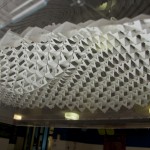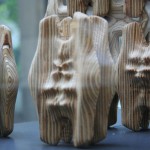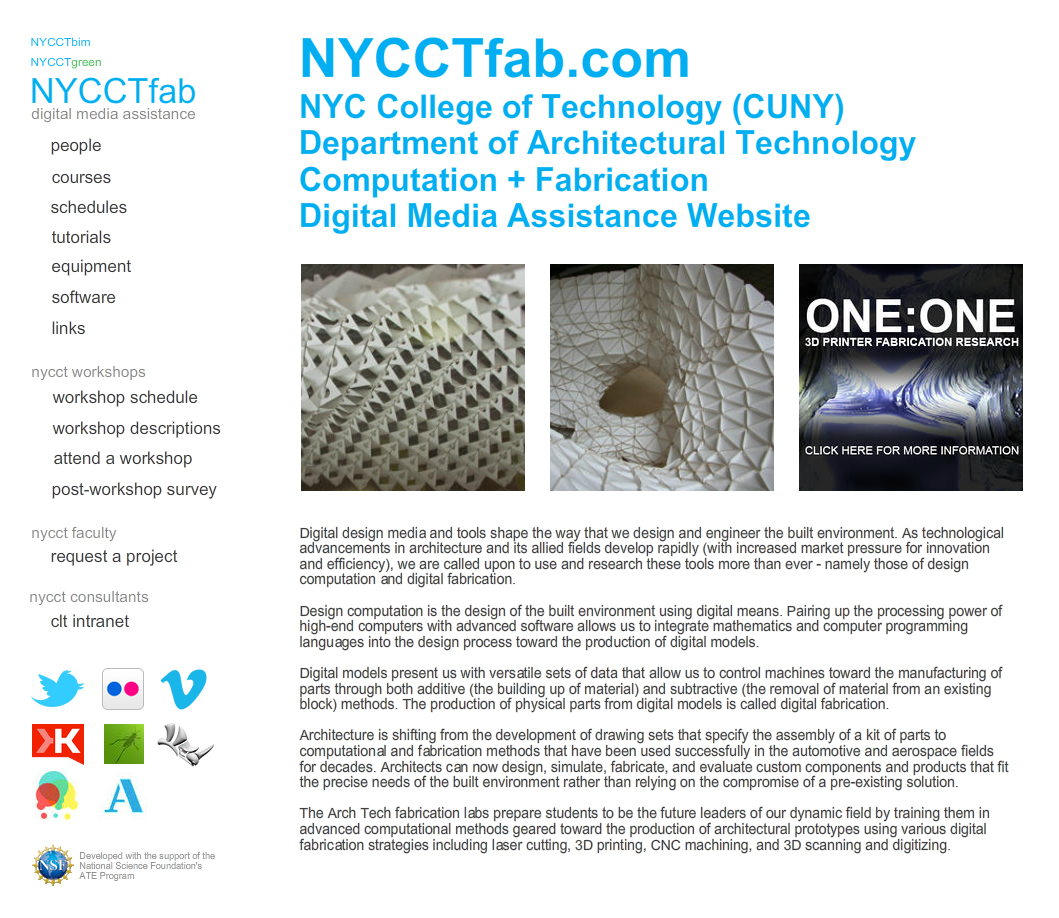 |
 |
 |
Digital design media and tools shape the way that we design and engineer the built environment. As technological advancements in architecture and its allied fields develop rapidly (with increased market pressure for innovation and efficiency), we are called upon to use and research these tools more than ever – namely those of design computation and digital fabrication.
Design computation is the design of the built environment using digital means. Pairing up the processing power of high-end computers with advanced software allows us to integrate mathematics and computer programming languages into the design process toward the production of digital models.
Digital models present us with versatile sets of data that allow us to control machines toward the manufacturing of parts through both additive (the building up of material) and subtractive (the removal of material from an existing block) methods. The production of physical parts from digital models is called digital fabrication.
Architecture is shifting from the development of drawing sets that specify the assembly of a kit of parts to computational and fabrication methods that have been used successfully in the automotive and aerospace fields for decades. Architects can now design, simulate, fabricate, and evaluate custom components and products that fit the precise needs of the built environment rather than relying on the compromise of a pre-existing solution.
The Arch Tech fabrication labs prepare students to be the future leaders of our dynamic field by training them in advanced computational methods geared toward the production of architectural prototypes using various digital fabrication strategies including laser cutting, 3D printing, CNC machining, 3D scanning/digitizing, and physical computing.
For more information and content on computation and fabrication, please visit our digital media assistance website NYCCTfab.com.




